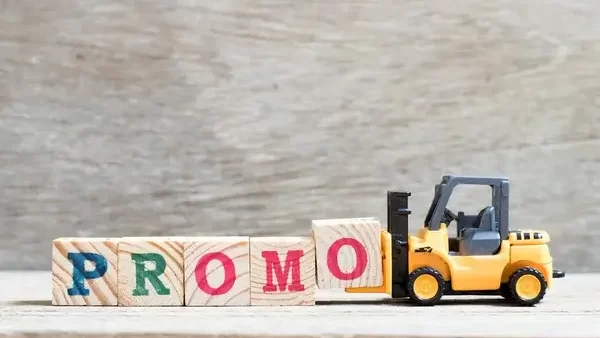
Tips for Importing Custom Promotional Products from China
If you are in the promotional gifts industry, sourcing customized promotional products from China can be a challenging and rewarding job. Do you want to find reliable suppliers and complete the order procurement process smoothly? Here are some comprehensive tips to help you do it:
Choosing Suitable Promotional Products Based on Client Needs
Understand Your Client’s Target Audience:
Demographics: Consider the age, gender, occupation, and interests of the target audience. For instance, tech gadgets may appeal to a younger, while eco-friendly products may attract environmentally conscious consumers.
Occasion and Purpose: Define the occasion for the promotional products, such as trade shows, corporate events, or holiday gifts. Products should be relevant and useful in these contexts.
Consider Product Utility and Quality:
Practicality: Choose items that are practical and can be used frequently, like custom pens, tote bags, or USB drives. Practical items are more likely to be kept and used by recipients, enhancing brand visibility.
Quality: Ensure the products are of good quality. Inferior products can negatively impact your client’s brand reputation.
Customization Flexibility:
Design Options: Look for products that can be easily customized with logos, slogans, or brand colors. Flexible customization options allow you to better meet your client’s branding needs.
Minimum Order Quantity (MOQ): Consider the supplier’s MOQ. Choose suppliers that offer flexibility to match the scale of your order.
Selecting and Identifying Reliable Suppliers
Research Thoroughly:
Use multi channel: Use a search engine such as Google or a B2B marketplace such as Alibaba to find potential suppliers. Browsing supplier websites will help you assess the reliability of suppliers. Vendor Verification: Look for vendors that have been verified by a third-party organization.
Check for certifications: Reliable suppliers should have the necessary certifications, such as ISO, CE or RoHS, which indicate that the supplier meets quality and safety standards.
Evaluate Supplier Credentials:
Years in Business: Suppliers with more years of operation tend to be more experienced and reliable.
Supplier Audits: If possible, conduct supplier audits either personally or through third-party inspection agencies. This helps assess the supplier’s production capacity and quality control processes.
Sample Requests: Order samples before placing large orders. Evaluate the quality of the products to ensure they meet your standards.
Communication and Responsiveness:
Responsive Communication: Reliable suppliers should be prompt and clear in their communication. They should be able to understand your requirements and offer viable solutions.
Familiarity with product production: Choose to work with a supplier salesperson who is well versed in customized gift production processes, printing methods, quality control, and more. They can provide you with the bulk orders you want and avoid bringing quality problems.
Negotiating Competitive Prices with Suppliers
Research and Benchmark:
Market Rates: Research the market rates for similar products to understand the price range. This will give you a benchmark and strengthen your negotiating position.
Multiple Quotes: Obtain quotes from multiple suppliers. Use these quotes to negotiate better terms with preferred suppliers.
Negotiation strategy:
Volume Discounts: Negotiate for best price if you plan to place large orders. Larger orders often warrant better pricing.
Flexibility: Be willing to compromise on certain aspects, such as payment terms or delivery schedules, to secure a better price.
Build Relationships: Develop long-term relationships with suppliers. Good relationships can lead to better pricing and priority service.
Be Clear and Specific:
Detailed Specifications: Provide as much detail as possible on product specifications and imprint requirement. Clear instructions facilitate precise quotations.
Price Breakdown: Request a price breakdown to understand the cost components (e.g., materials, labor, packaging). This knowledge can help in identifying areas where you can negotiate reductions.
Ensuring Smooth Order Completion from Inquiry to Shipment
Terms and Agreements:
Contracts: Ask supplier to draft a detailed contract that outlines all terms and conditions, including product specifications, payment terms, delivery schedules, and quality standards.
Payment Terms: Negotiate favorable payment terms. A common practice is to pay a 30% deposit upfront and the remaining 70% upon completion of the order.
Quality Control:
Inspections: Arrange for inspections at different stages of production. Pre-shipment inspections can ensure that the final products meet your quality standards.
Third-Party Quality Assurance: Engage third-party inspection services if you cannot personally oversee the quality checks. They can provide impartial reports on product quality.
Logistics and Shipment:
Shipping Options: Discuss shipping options with your customer and supplier. Decide between air freight for faster delivery or sea freight for cost savings.
Customs Clearance: Ensure all necessary documentation for customs clearance is in place. Incomplete or incorrect documentation can lead to delays and additional costs.
Track and Monitor: Use tracking services to monitor the shipment’s progress. Keep in touch with the supplier and logistics provider to promptly address any delays or issues.
Post-Shipment Follow-up:
Feedback: Provide feedback to the supplier after receiving the order. Constructive feedback can help improve future orders.
Address Issues: Address any quality issues or discrepancies immediately with the supplier to find a resolution.
By following these comprehensive tips, you can ensure a smooth process in importing custom promotional products from China, ultimately satisfying your clients’ needs and enhancing your business success.
